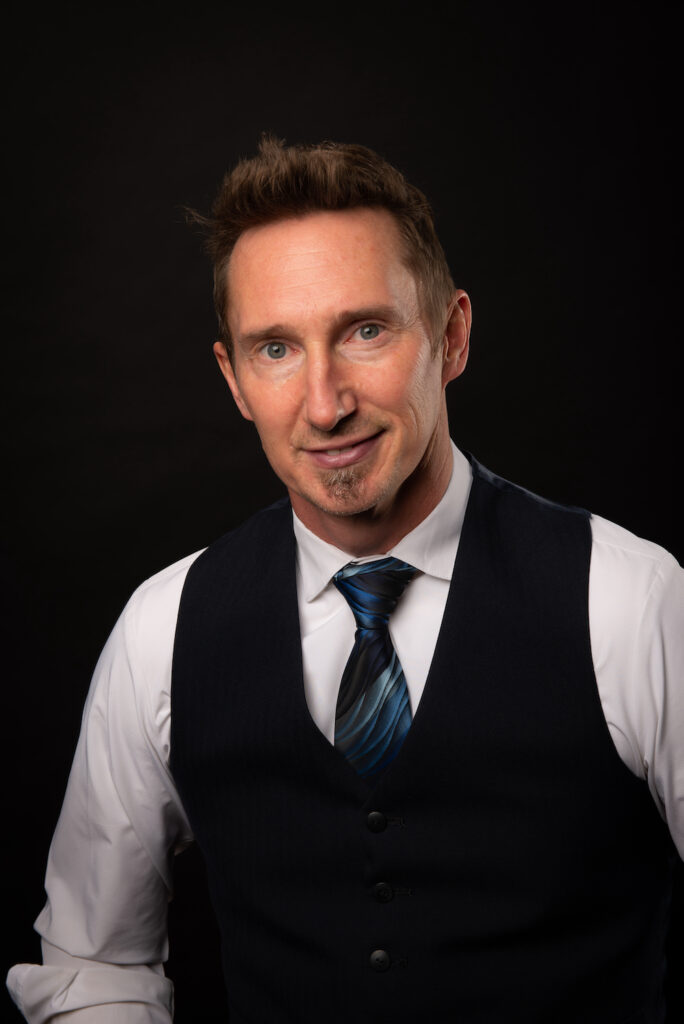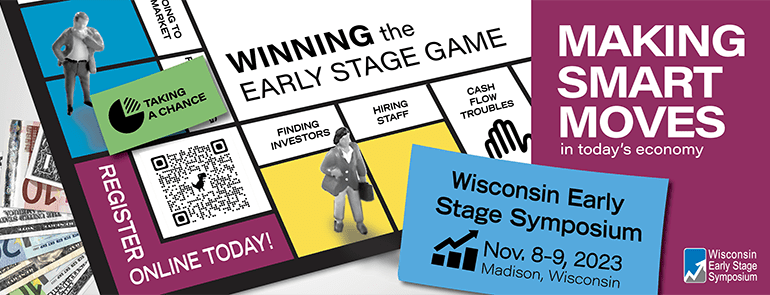
Gundersen Health System
At-a-Glance
Type of Firm: Corporate VC and incubator
Geographic Focus: The product must be useful in WI, MN or IA
Sector Focus: Healthcare with emphasis on digital
Financing Stage: Incubator, seed, Series A
Investment Range: $500K to $30M
Investment Horizon: 3-5 years but can be longer
Contact Info*: Bill Farrell –
Corey Zarecki –
*Include in Subject line: Innovation inquiry from CTC blog
How/why did you get into investing? What is the most exciting/rewarding part for you?
I have been on both sides of the fence. I have been in the corporate world for about half my career and in the entrepreneurial world my entire life with several startups. I’ve experience joint ventures, built strategic partnerships and served on boards of startups and public companies. When I joined Gundersen Health System, it was a natural progression to start and manage a corporate VC fund.
Drawing upon my startup experience to help new entrepreneurs is super rewarding. I have felt the ups and downs. I have been on my knees looking for the next dollar so I can pay my people. It’s hard to explain unless you have been through it. One thing I didn’t have was a formal process to make sure my business was going through the right steps in the right order, so it was ready to accelerate and scale. In my current position, I get to help with that.
Give us a brief overview of your firm and your investment strategy.
We’re really focused on healthcare investments, and much of that is digital. Our investments are anywhere from $500K to $30M. Although it is important the products can be used in our territory – Wisconsin, Minnesota and Iowa – the companies we invest in do not have to be from here. Most importantly, businesses need to support our strategies to solve current and future anticipated pain points. We want to stay relevant, so we are looking for companies that will put us on the leading edge and help us disrupt ourselves before we are disrupted by others.
We are creating our own incubator and are happy to talk with early stage entrepreneurs who are willing to go through a rigorous process to do the right things in the right order with the goal of coming out of it with a fundable idea. We are also happy to talk with businesses that are at the accelerate and scale phase. With those companies, we ask that they be flexible and open to working with us as partners. Sometimes an innovation is close to solving our pain point but isn’t quite there. As partners, we can help refine the solution to make it a better fit. We are also engaging our own employees because there might be some intrapreneurs within Gundersen.
At what point should entrepreneurs be when they first contact you?
Do your homework to know a little about Gundersen. We have a triple aim – reduce costs, improve the health of our communities, and improve the healthcare experience, especially digitally. If you can solve a pain point in those areas, it’s possible we will partner.
It’s also good if you have done some self-reflection and are transparent about where you are in the ideate, incubate, accelerate, scale, path. Sometimes a calibration needs to happen. For example, a company might be trying to scale when it hasn’t even incubated yet. Entrepreneurs should be able to be vulnerable with us. If you are open and willing to work with us, we are looking for partners and will provide resources.
Describe the ideal first interaction scenario you have with an entrepreneur.
Start by telling us about the Gundersen pain point you are trying to solve. If you are actively looking for money, bring us a pitch deck to show you have thought through basic questions and understand your business model. If you are at an earlier stage and are just looking for some initial advice, we are open to that conversation, too.
If there is continued interest, what happens next?
If your company is at a very early stage with a pre-investable idea that interests us, it’s possible we would help fund your participation in our incubator. For companies that interest us in the accelerate or scale phase, we start with a pre-diligence process. If that goes well, we move into a more detailed diligence process that includes presenting to our Innovation Council.
What can you tell us about how you determine business valuation?
We like to think of our portfolio as a balance of ideas that are singles, doubles, triples, and home runs. At any given time, we might be focusing on ideas and companies that help us maintain a good balance. Ultimately, the value is going to come from the strategic contribution of the solution, the size of the pain point it solves, the future revenue we can gain from it, and its ability to combat or defend us from disruptors.
When it comes down to specific valuation, if we are the lead investor and negotiating a term sheet, we will work with a third party to do a valuation. If we are a follow-on investor, then we latch onto the terms that have already been negotiated.
Besides money, what else do you bring to the table for the companies you invest in?
It’s really all about that strategic partnership. Gundersen has more than 9,000 employees, about 1,000 providers that are on the frontline, and we have expertise across pretty much every specialty. We love to capitalize on that. It’s also enriching for Gundersen staff to be involved in those partnerships. Innovation is engaging, and it’s part of our internal plan to get people connected.
In what ways do entrepreneurs often fall short when asking for money?
I’ve been through this and have made all these mistakes. We often see entrepreneurs who have ideas that have not been validated to solve pain points that healthcare systems will pay for. When you ask for money without this validation, it can be a humbling experience. Some investors won’t tell you that’s the problem. They just won’t return your call.
Inflexibility of the management team is another one that we’ve seen. For example, a company might have already spent a lot of time, money and energy on its current solution only to learn the health system wants something slightly different. If those entrepreneurs aren’t willing to be flexible and are asking for money, they are going to fall short with us. This goes back to the fact that we are looking for strategic partners.
What else do you want companies that are seeking funds to know?
We’re not in it for the short term. Gundersen is 127 years old, and we want to still be here 127 years from now. We think that innovation and investing is a critical part of being in that future. We are trying to create a network within the innovation community. We don’t know everything, but we are willing to learn. We are flexible. We respect founders and entrepreneurs and want to be good strategic partners that will work with them. Gundersen is in the game.
What is one wish you have for the Wisconsin entrepreneurship ecosystem?
I started in the Midwest, then moved to do a joint venture in California where it’s a totally different world when it comes to the entrepreneurial ecosystem. One thing that stands out there is the amount of support that entrepreneurs give each other to make it through tough times. There is an expression that says, success is the ability to move from one failure to the next with no loss of enthusiasm. This does not mean you are starting 20 businesses and 19 fail. It means you are going to fail 19 times within your one business before you succeed. We need a mindset and support system that helps you get through those 19 failures and still be enthusiastic. I hope we can build an infrastructure in Wisconsin that helps entrepreneurs get through the days when even their moms don’t support their decision.
Bonus Question: Tell us one fun fact about yourself or your firm.
Twelve years ago, Gundersen started a sustainability company called Envision® because healthcare is one of the biggest wasters of energy on the planet. We didn’t have an innovation program when we started it, but we had a CEO who was super passionate about it. This year, after spending over $40M on the venture, we are finally going to break even. I always say it takes 10 years to become an overnight success, and in this case, it was 12. Based on our success, we have had consulting engagements with other healthcare systems, including Kaiser, Mayo, and even the U.S. Department of Energy. You have to stick with this stuff. Gundersen is a company that can do that.


